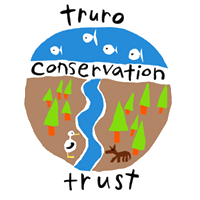State Income Tax Credit
Learn more about the new state income tax credit (up to $75,000!) that can result when preserving eligible land with your local land trust. For a free, confidential conversation, please contact Mark Robinson, The Compact’s Executive Director, by phone 508-694-7415 or email mark@thecompact.net.
Gift of Land – Outright Donation (Fee Simple Transfer)
Giving the land to a nonprofit conservation organization or to a government agency is the simplest way to protect land. It is only necessary to obtain acceptance from the agency or organization to which the land will be donated, prior to deeding the land. A gift insures long-term protection of the land. The donor receives tax benefits in the form of federal income tax deductions, potential estate tax benefits, and relief from property taxes. The donor is relieved of management responsibilities, and automatically absolved of liability associated with any trail use.
About 90 percent of the properties preserved on Cape Cod were donated to a local land trust or town conservation commission. About 50 parcels per year are donated outright in this manner. Typically, the only cost to the land donor is for an appraisal, which certifies the value of the donated land for federal income tax deductions. Appraisals are needed when the claimed value of the deduction is more than $5,000. Land trusts usually ask donors to pay remaining property taxes on the land before it becomes tax exempt in the next fiscal year.
Donation by Will (Bequest)
A gift of land made through a will entitles the donor to retain full use of the land during his or her lifetime and assures that it will be cared for in the future. It is advisable to discuss the gift with the agency or organization prior to inclusion in a will, to insure a plan for the care of the land. The donor is responsible for real estate and income taxes for the property during his or her lifetime. But removing the land from an estate will reduce inheritance taxes.
Donation with a Reserved Life Estate
A donation with a reserved life estate may be made to a government agency or conservation organization. The donor retains the use of the land during his or her lifetime, and the lifetimes of specified family members. A reserved life estate insures that the land is protected in perpetuity, yet allows the donor to reside on it and maintain the land. The tax advantages with a retained life estate are less that those with an outright donation.
For more information on conservation options, visit The Compact of Cape Cod Conservation Trusts website.
